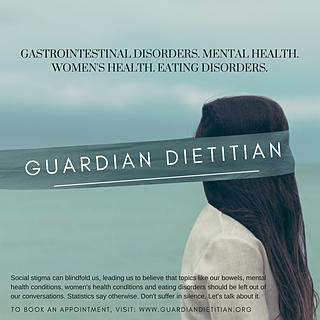"No, kale isn't going to save you": Why nutrition needs a smarter conversation
- Lane Edwards
- Jul 15
- 2 min read
By Guardian Dietitian
You've seen the headlines—"Top 5 Foods for Gut Health", "Best Superfoods for Hormones", "Eat These 3 Things to Lose Belly Fat".
They're everywhere—on instagram, in wellness blogs and magazines. They promise clarity and something concrete for us to take action on in the complex world of nutrition. But for many people, they deliver something else entirely: anxiety, guilt, and a sense that you're always doing it wrong or you're just not trying hard enough.
"I Googled the best foods for PCOS and ended up with lists that contradicted each other", said a polycystic ovary syndrome patient recently. "One said to eat sweet potatoes, another to avoid them. I just felt overwhelmed."
The Problem with Lists
Nutrition isn't a ranking system. It's not a competition to see who can eat the most kale or sprinkle the most chia seeds on their breakfast. But this is how it's often presented. Top 5 lists oversimplify incredibly complex science. They ignore individual needs, medical conditions, cultural preferences, and accessibility. They're designed to be clickable—not clinically accurate.
And they can be harmful. Research shows that moralising food—labeling it "good" or "bad"—can lead to disordered eating patterns, especially in young people and those with chronic health conditions. It also fuels the idea that health is something you can obtain when bought at a store in a bottle or from a trending recipe.
What Actually Works
So what should we focus on instead?
Eating patterns. Not single foods. Not magic bullets. It's about what you eat consistently over time, how it fits into your life, and how it supports your health goals.
At Guardian Dietitian, the team takes a personalised approach. That means looking at your medical history, your lifestyle, your cultural background, and your relationship with food. It's not about prescribing multivitamins or forcing you to eat quinoa—it's about finding what works for you.
For some clients, that means managing IBS with low-FODMAP strategies. For others, it's about building a balanced plate that supports hormone health or blood sugar stability. And for many, it's about unlearning years of diet culture messaging.
The Case for Compassionate Nutrition
We're not here to judge your pantry. We're here to help you feel better, think clearer, and eat in a way that supports your body and your life.
That means ditching the lists and embracing nuance. It means asking better questions—like:
What foods help me feel energised?
What meals fit into my routine without stress?
What habits can I build that are sustainable?
And it means recognising that nutrition isn't just about nutrients. It's about culture, comfort, connection and care.
Food isn't a trend. It's a tool. And when used wisely—with guidance, empathy, and evidence—it can be transformative.
So next time you see a "Top 5 Foods" list, take a breath. Then ask yourself: what does my body need today? And if you're not sure, then maybe reach out to someone like an Accredited Practising Dietitian who can help you to understand it better.








Comments